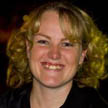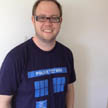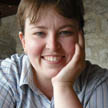I’m a Scientist is like school science lessons meet the X Factor! School students choose which scientist gets a prize of $1000 to communicate their work.
Scientists and students talk on this website. They both break down barriers, have fun and learn. But only the students get to vote.
This zone is the Disease Zone. It has scientists studying the causes and processes of illness . Who gets the prize? YOU decide!









In science, I discovered that an enzyme(RDPase) in mammals breaks down beta-lactam antibiotics. It was thought to be in bacteria only causing antibiotic resistance.
In every day life, I discovered(realized) how wonderful to breathe through nose(nostils more exactly). I once had an accident and my nose bone was fractured. It was very painful to breathe through mouth.
0
I don’t work in a research type lab where we make discoveries – we test samples taken from people so doctors can work out the best way to treat their illnesses.
0
Chocolate, bacon and maple syrup cupcakes!
…. Oh, you probably meant science discovery, huh?
I don’t know if we ‘discover’ so much as figure stuff out. I use information that is already out there to figure out how it might have an effect in the condition I’m looking at, or how we might be able to use that information to treat it. I guess when we manage to get something to fit, that would be a discovery!
During our last animal trial, we *think* we might have found an interaction between two treatments that no-one has shown before, but because the results were so unexpected, we have to go back and do the same experiments again from the start, to see if there really is an interaction. If there is, that would be a very important discovery. One is EPA, which you get from eating fish oil (you might have seen the adverts on TV about how good it is for you). Lots of cachexia patients take EPA because many scientists have found that it helps slow down muscle loss, and make patients feel better. The other treatment blocks an enzyme called Xanthine Oxidase, which makes ‘free radicals’, which are small molecules that can cause lots to damage to your cells and DNA. Quite a lot of cancer patients take this drug, and another lab thinks it might help with muscle wasting too. But when we put them together, they had a different effect on the mice to if they had one of the treatments on its own.
People with cancer and cachexia get put on lots of drugs to try to make them well again, and sometimes mixing those drugs can have bad effects, making patients sicker, instead of helping them recover. That’s why discoveries like this are important, because we can stop patients being given mixtures of drugs that on their own would help them, but all together would make it worse.
1
I think the best work I’ve done so far is the discovery about this pill that stops mice from getting fat on a high fat diet! If that works in people, then we’ve discovered the magic pill!!!!
The pill works in your brain and tells your body to burn more fat. How cool is that! And we all found it by accident as well. We were studying diabetes, and after this discovery it turned into weight loss research.
1
My best discovery is probably the effect that something called ‘niche construction’ has on the way that viruses grow and spread. Niche construction is a part of evolutionary theory that deals with how organisms change their environments, and how those changes can persist and feed back into the evolution of the organism itself and to other organisms at the same time. Beavers are a good example of this, in how dam building genes drive them to change the environment by building dams which then changes the evolution of other genes in the beaver and change the environment for other organisms in the forests and wetlands that the beaver is working in.
I study a similar process in viruses; one of the reason I study ‘zombie’ caterpillars and the viruses that control them is because I’m looking at how the changes that the viruses make to the caterpillars affect other parts of the virus in a feedback loop (niche construction!). This is work that I’m just finishing now, and I’m writing it up for publishing in an academic journal as I write this! (Actually, I should get back to it, but I’m having too much fun answering questions on this last day…) 🙂
0